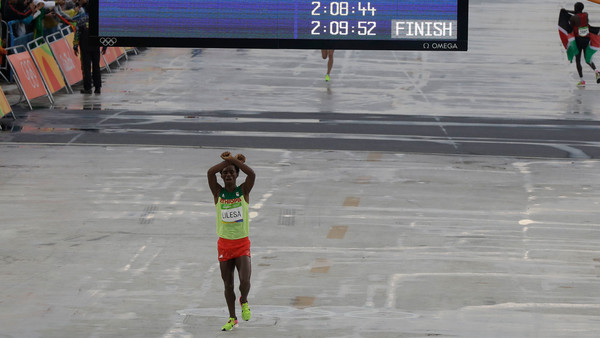Date: Mon, 29 Aug 2016 23:41:54 +0200
- August 29, 2016
Over the past nine months, hundreds have been killed and thousands incarcerated in a crackdown on protesters from the Oromo, the country’s largest ethnic group. Feyisa, like many of Ethiopia’s revered long-distance runners, is Oromo. The unrest among his people, which has spread to other groups, is symptomatic of a wider collision as the government seeks to transform a predominantly agrarian society through industrialisation, commercial farming and urbanisation.
Ethiopia has spurred some of the fastest economic growth in Africa while eschewing liberal market orthodoxy and giving the state a central role in development. It is an experiment keenly watched by other African governments more constrained by democratic process.
The protests suggest that this authoritarian development model is running up against its limits. They were originally sparked by federal government plans to extend administration of the overcrowded capital Addis Ababa into the surrounding region of Oromia. Those plans have since been shelved.
But what started as parochial opposition to corrupt land deals has conflated with broader grievances about political repression and the perceived dominance in federal institutions of the Tigray ethnic group. Tigrayans, who spearheaded the overthrow of the government in 1991, make up about 6 per cent of the population.
In theory Ethiopia has the wherewithal to deal with such tension. In practice there is a fundamental contradiction in the way it is governed: between the federal nature of the state as enshrined in the constitution and the reality of centralised, authoritarian power. The de facto one-party state may retain sufficient strength to maintain hegemony for now. But in reverting to such crude tactics to suppress dissent, the government has raised the risk that what started as peaceful protest will evolve into armed revolt.
It is a scenario familiar to many African states. What sets Ethiopia apart is the effectiveness with which the government has approached development. Allies in the US and Europe have come to rely on the country’s comparative stability in a strategically important region threatened by Islamist extremists. International donors have turned a blind eye to the excesses of the regime — as they do in Rwanda, which shares a similar profile — and helped bankroll the state in part because they have received value for their money.
This is short-sighted. To sustain investment in infrastructure, and accelerate export-led industrial and agricultural growth, the country will require greater amounts of foreign capital. That capital will shy away from a further breakdown in law and order.
The government could start by respecting the spirit of the constitution and ushering in more decentralised rule. It needs to loosen in parallel its grip on political and economic freedom if there is to be a chance of providing opportunities for the 100,000 students graduating every year. It will be a delicate process given how tightly controlled the country has been and how charged the climate is as a result. But it is a necessary one. Ethiopian exceptionalism has run its course.
